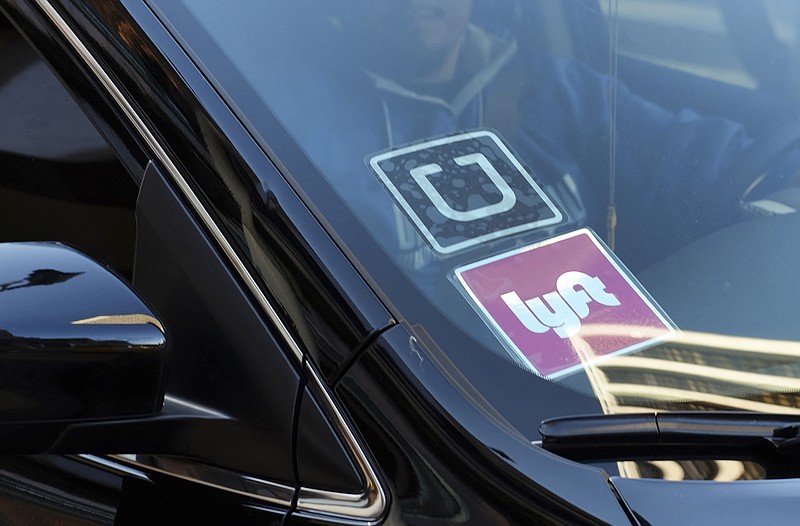SAN FRANCISCO -- A California appeals court Thursday upheld an order requiring Uber and Lyft to treat their California drivers as employees instead of independent contractors.
Treating drivers as employees would guarantee benefits such as overtime, sick leave and expense reimbursement for workers who make up much of the gig economy.
The court's ruling comes less than two weeks before voters will be asked to exempt the ride-hailing giants from the state's gig economy law, which says companies can classify workers as contractors only if they perform work "outside the usual course" of their business.
The companies are sponsoring a state ballot initiative, Proposition 22, to exempt them from the law and allow them to continue classifying drivers as independent contractors while providing them with limited benefits. The court gave Uber and Lyft a grace period in which to make changes, and if the ballot initiative succeeds, it could throw the ruling into question.
The ruling won't have any immediate impact because it doesn't take effect for at least 30 days, well after the Nov. 3 vote.
Uber and Lyft have argued that they are technology companies, not transportation businesses. Employing drivers would force them to raise fares and hire only a small fraction of the drivers who currently work for them, they said.
[Video not showing up above? Click here to view » https://www.youtube.com/watch?v=9lr_77_HjNQ]
"This ruling makes it more urgent than ever for voters to stand with drivers and vote yes on Proposition 22," said Julie Wood, a spokeswoman for Lyft.
Together, Uber and Lyft have more than 400,000 drivers in California.
The ruling by the California 1st District Court of Appeal is the result of a lawsuit brought by the state's attorney general and the city attorneys of San Francisco, Los Angeles and San Diego. The state and city agencies sued the ride-hailing companies in May to enforce the state labor law for gig workers.
After a lower court ruled that Uber and Lyft must immediately comply and hire the drivers, the companies fought back. They threatened to shut down in California and appealed the decision, winning a last-minute reprieve from the appellate court while it considered the case.
This time, Uber and Lyft are less likely to threaten a shutdown. The appellate court required them to develop plans to employ drivers in case the ruling did not go in their favor, and the companies have considered establishing franchise-like businesses in the state to avoid directly hiring drivers.
Uber and Lyft may choose to appeal the ruling to the state Supreme Court. But it could be a futile effort. In 2018, that court established a strict employment test that became the basis for the law the companies are now fighting.
"We're considering our appeal options, but the stakes couldn't be higher for drivers," said Matt Kallman, an Uber spokesman. He argued that if Proposition 22 fails at the polls, hundreds of thousands of drivers would lose work and the company might shut down in parts of the state.
Uber and Lyft have said that it would be too expensive to hire all their drivers, causing catastrophic harm to their businesses. But that does not justify the losses for drivers who went without workplace protections, the appellate court said.
"When violation of statutory workplace protections takes place on a massive scale, as alleged in this case, it causes public harm over and above the private interest of any given individual," the court wrote in its decision Thursday.
State officials have argued that the companies must comply with the law, known as Assembly Bill 5, so that workers can obtain sick leave, overtime and other benefits -- needs that have become especially pressing during the pandemic.
The law has wide-reaching implications across a number of sectors, but none more so than the ride-hailing industry. Lawyers for Uber and Lyft say drivers are not fundamental to the business, arguing the companies are "multi-sided platforms" whose activities encompass much more than transportation.
California Attorney General Xavier Becerra praised the appellate decision.
"Californians have fought long and hard for paycheck and benefit protections. Uber and Lyft have used their muscle and clout to resist treating their drivers as workers entitled to those paycheck and benefit protections," Becerra said in a statement. "The courts saw right through their arguments. In the midst of a covid health and economic crisis, what worker can afford to be denied basic protections like paid sick leave, unemployment insurance, minimum wage, or overtime?"
Information for this article was contributed by staff members of The Associated Press and by Kate Conger of The New York Times.
